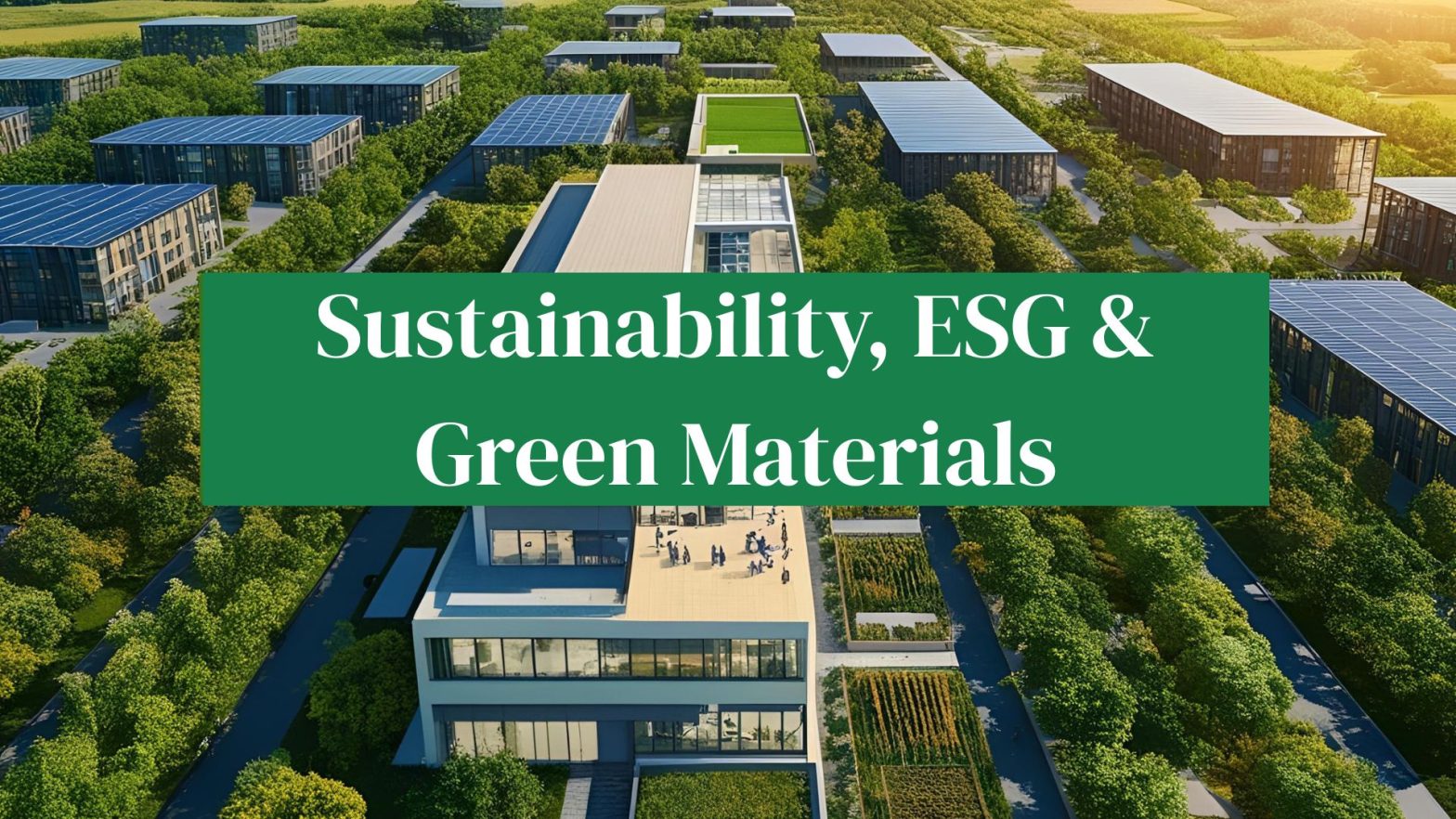Your pricing might be sharp. Your delivery record might be spotless. But if you can’t speak to sustainability, your contract renewal may still be at risk.
For decades, contract renewals in industrial distribution were driven by three pillars: price, service, and availability. Sustainability was rarely, if ever, a factor. That era is over. Today, especially in sectors like commercial construction, public infrastructure, and manufacturing, sustainability performance is increasingly influencing whether a distributor gets renewed—or replaced.
Clients across North America are facing pressure from investors, regulators, and customers to reduce their environmental impact and meet ESG (Environmental, Social, and Governance) goals. That pressure travels down the supply chain. And if you’re supplying materials like glass, steel, HDPE sheets, plywood, or kraft paper, your sustainability posture is part of their compliance risk—and their brand narrative.
Let’s break down how sustainability is being evaluated during contract renewals, what metrics matter most, and how proactive distributors can turn ESG alignment into long-term customer retention.
Sustainability: From Procurement Preference to Contract Requirement
What started as a soft preference—”green where possible”—has become a formal requirement in many bid and renewal cycles. The shift is being driven by:
1. Government Procurement Policies
State and federal agencies are implementing Buy Clean programs and embodied carbon caps for public projects. Contracts with DOTs, municipal housing authorities, or school districts now often require:
Environmental Product Declarations (EPDs)
Post-consumer recycled content disclosures
VOC and Health Product Declarations (HPDs)
Distributors who can’t supply this documentation—or whose materials don’t meet sustainability thresholds—risk losing public contracts, even if pricing remains competitive.
2. Corporate ESG Mandates
Many corporate clients now operate under Scope 3 emissions reporting obligations, which include the carbon footprint of purchased materials. If you’re supplying steel rebar, float glass, insulation board, or resin pallets, your product’s environmental profile becomes their liability.
Renewals increasingly require vendors to demonstrate low-carbon alternatives or, at minimum, provide cradle-to-gate carbon data.
3. Green Building and Product Standards
LEED v4.1, WELL Building Standard, and Living Building Challenge credits are shaping procurement decisions even on private-sector jobs. Project managers and GCs expect suppliers to furnish material transparency and environmental documentation as part of renewal discussions.
What Sustainability Metrics Matter in Renewal Conversations
If you’re facing a contract renewal with a sustainability-focused buyer, expect to be evaluated across these key areas:
1. Carbon Intensity of Materials
Clients want to know the embodied carbon of your top-selling SKUs. Whether you’re moving laminated glass, galvanized steel, or acrylic sheets, you’ll need to provide:
Verified EPDs
GWP (Global Warming Potential) metrics
Details on energy sources used in manufacturing
2. Recycled Content and Circularity
Materials made with post-consumer or post-industrial recycled content are viewed as lower-impact. For paper and packaging clients, FSC certification and chain-of-custody matters. For glass, cullet content is key. For plastics, closed-loop take-back systems can be a differentiator.
3. Toxicity and Indoor Air Quality
Materials used in interior construction—like composite panels, glazing systems, or insulation—may be screened for VOC content, phthalates, or heavy metals. Clients may ask for:
HPDs
Greenguard or Declare labels
VOC emissions data
4. Supplier Ethics and Governance
Some clients—especially institutional ones—review governance indicators like:
Labor standards in your supply chain
Anti-corruption or fair trade certifications
Diversity, equity, and inclusion (DEI) policies
Even if you’re not rated by MSCI or Sustainalytics, your practices may be screened during renewal.
Case Example: A Glass Distributor Retains a University Contract
A mid-sized glass distributor in the Northeast was facing renewal of a multi-year contract with a large public university system. In the past, their low-E glass and IGU products had been selected based on price and lead time.
But in the latest renewal cycle, the university’s procurement team requested EPDs for all glass products and a breakdown of post-consumer cullet content by manufacturer. They also asked for a sustainability report covering transportation logistics and local sourcing.
Because the distributor had already built a library of product EPDs, and had partnered with two float lines running cullet-fed furnaces, they were able to meet the new criteria—and retain the contract without rebidding.
How to Prepare for Sustainability-Linked Renewals
If your clients haven’t yet requested sustainability documentation during renewals, they soon will. Here’s how to get ahead:
1. Audit Your Top SKUs
Start with your top 50 products by revenue. For each, ask:
Does this product have an EPD or HPD?
Is the recycled content verified?
Can I document its manufacturing origin and energy inputs?
2. Standardize Sustainability Submittals
Package sustainability data into a renewal-ready format—PDF kits with EPDs, spec sheets, and recycled content letters.
3. Train Sales Teams on ESG Language
Buyers may ask about Scope 3, VOC limits, or LEED points. Your reps should be fluent in these conversations—or risk losing credibility.
4. Invest in Digital Traceability
Implement systems that allow fast retrieval of sustainability documentation—ideally linked to your inventory or ERP system.
Final Word: ESG Is Now a Retention Lever
In an era where environmental performance is a contract condition—not just a marketing story—sustainability is no longer optional. It’s integral to renewal strategy.
Distributors who integrate ESG documentation into their client experience, proactively align with low-carbon producers, and train their teams to speak sustainability will not only protect existing contracts—they’ll become preferred vendors for the next generation of high-performance, compliant projects.
Naturally embedded SEO & AEO keywords:
sustainability in contract renewals
ESG requirements for industrial suppliers
low-carbon materials for procurement teams
EPDs in contract compliance
post-consumer recycled content verification
green building material contracts
Scope 3 emissions and vendor selection
LEED-compliant product sourcing
sustainable glass distributor
environmental product documentation in renewals


